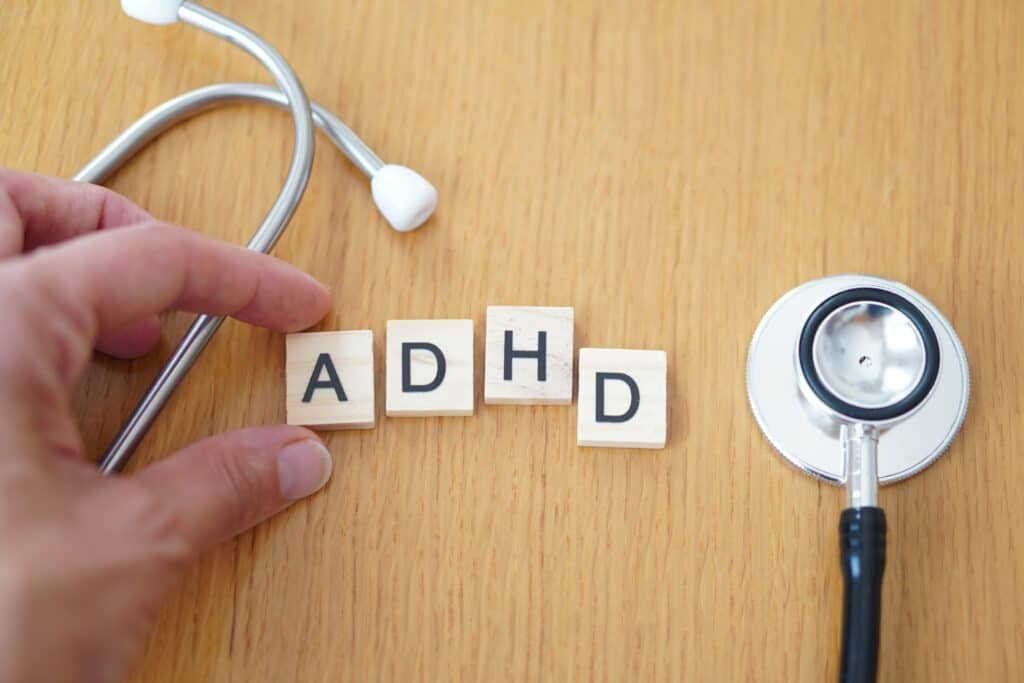For many adults, persistent restlessness, difficulty paying attention, or trouble finishing everyday tasks might feel like personal flaws. But these challenges may be signs of something more. Attention-Deficit/Hyperactivity Disorder (ADHD) is not just a childhood condition—it often continues into adulthood, where its symptoms can quietly disrupt work, relationships, and emotional well-being. Yet, because adult ADHD doesn’t always look the same as it does in kids, it’s frequently overlooked or misunderstood. Recognizing common ADHD symptoms—like disorganization, impulsivity, or difficulty managing time—is the first step toward clarity and healing.
If you’re one of the many people with ADHD navigating daily stress, forgetfulness, or mental exhaustion, support is available. Mental Health Resource offers trusted connections to evidence-based services to help individuals better understand and manage attention-deficit hyperactivity disorder. ADHD treatment options empower people struggling with ADHD to improve focus, ease depression or anxiety, and reclaim a sense of stability and control.
What is Attention Deficit Hyperactivity Disorder?
Attention-Deficit/Hyperactivity Disorder (ADHD) is commonly linked with childhood, but research shows it often continues into adulthood, frequently going unrecognized or misdiagnosed. In fact, ADHD in adults can present very differently than it does in children, which makes identifying it more complex.
Many people with ADHD may not realize that their struggles with focus, organization, or impulsivity are rooted in a neurological condition. Understanding what the adult symptoms of ADHD are is crucial, especially during awareness campaigns like ADHD May, which emphasize early detection and support.
At its core, ADHD is a neurodevelopmental disorder that affects the brain’s executive functions, such as impulse control, working memory, and concentration. By learning to recognize the symptoms early and seeking the right treatment, individuals can better manage the impact of ADHD on their daily lives. Raising awareness of ADHD in adults is a vital step toward encouraging accurate diagnosis and comprehensive care.

Core Symptoms of ADHD in Adults
Adult ADHD symptoms generally fall into three core categories: inattention, hyperactivity, and impulsivity. Although the way these symptoms present may differ from childhood forms of attention-deficit/hyperactivity disorder, the underlying neurological challenges remain. According to the American Psychiatric Association, many adults with ADHD may not even realize they have the condition until symptoms begin interfering with daily activities or relationships, prompting them to seek support through health care providers.
Inattention and Disorganization
Adults with ADHD may experience ongoing issues with inattention that affect productivity, communication, and daily functioning. These challenges include:
Sustaining attention: Individuals may be easily distracted by external stimuli or intrusive thoughts, particularly during routine or repetitive tasks.
Disorganization: People with ADHD often struggle to manage things like to-do lists, paperwork, and personal belongings, leading to chronic stress and lost time.
Poor time management: Many experience frequent careless mistakes, chronic procrastination, or difficulty estimating how long a task will take.
Forgetfulness: Missing appointments, forgetting deadlines, or losing items like keys or phones is a common frustration for adults with ADHD.
These symptoms not only affect work and home life but can also delay diagnosing ADHD, especially when adults attribute their struggles to personal failings rather than a treatable condition.
Hyperactivity and Restlessness
In adulthood, hyperactive impulsive symptoms tend to be more internalized than in childhood, but they remain disruptive. Adults may not appear overtly hyper but still experience:
Feeling restless: A near-constant sense of internal agitation or an inability to relax, even when sitting down.
Difficulty sitting still: A tendency to fidget, pace, or feel discomfort during long meetings or quiet moments.
Trouble waiting: Struggling with delays or long lines, often feeling impatient or irritable in such scenarios.
Excessive talking: Interrupting others or dominating conversations without realizing it can hinder personal and professional relationships.
These behaviors often go unnoticed by others, but they contribute to chronic exhaustion and frustration for the individual.
Impulsivity and Emotional Regulation
Impulsivity and difficulty regulating emotions are hallmark traits that can interfere with long-term goals, decision-making, and relationships. Adults with ADHD may demonstrate:
Hasty decisions: Making purchases or commitments without thinking them through or considering long-term consequences.
Emotional dysregulation: Rapid shifts in mood, frequent irritability, and feelings of being overwhelmed are common in people with ADHD.
Low frustration tolerance: Struggles with patience or feeling easily provoked, often leading to outbursts or withdrawal.
Recognizing these symptoms can help adults better understand their behavior and seek the appropriate health care support. ADHD is a manageable condition, and with the right diagnosis and treatment plan, individuals can regain control over their daily activities, relationships, and emotional well-being.
Common Challenges Adults with ADHD Face
While ADHD symptoms may appear subtle in adulthood, they can cause substantial day-to-day difficulties. People with ADHD often face chronic problems like forgetfulness, poor time management, difficulty paying attention during conversations or meetings, and emotional sensitivity.
These struggles can create friction in romantic relationships, cause missed deadlines at work, and erode self-esteem. For many, daily life feels disorganized and overwhelming, leading to frustration and burnout. Recognizing these patterns as signs of a treatable mental health condition is a crucial turning point in getting help.
The Importance of Diagnosing ADHD and Treatment
When attention-deficit/hyperactivity disorder (ADHD) goes undiagnosed, it can significantly disrupt a person’s life, leading to a cascade of challenges across personal, academic, and professional settings.
Many adults reflect on their childhood and find that they struggled in school, had trouble staying focused, and were labeled as lazy, disorganized, or overly emotional, never realizing they were living with a neurodevelopmental condition. As one of the most common disorders affecting both children and adults, ADHD often impacts relationships, job performance, and emotional well-being when left untreated.
However, with a proper diagnosis and a comprehensive treatment plan, individuals can learn to manage their symptoms and thrive in everyday life. Whether ADHD is diagnosed in childhood or in adulthood, the right support can improve focus, boost confidence, and restore a sense of control.
Treatment options may include:
Behavioral Therapy for Adults with ADHD and Mental Health
Working with a therapist to develop personalized coping strategies, manage emotional reactivity, and build organizational skills that improve productivity and stability in both work and home life.
Medications to Address ADHD Symptoms
Both stimulant and non-stimulant medications have been shown to help regulate dopamine and norepinephrine, improving focus and reducing impulsivity in people with ADHD.
Support Groups for Attention Deficit Hyperactivity Disorder ADHD
Participating in peer-led or professionally guided support groups allows individuals to connect with others facing similar challenges, learn new strategies, and build a sense of community and belonging.
If you or a loved one suspects ADHD may be impacting your life, don’t wait to seek answers. You can make an appointment with your primary care provider who can aid in a diagnosis. Early recognition and treatment of ADHD symptoms can change the trajectory of your future.
For more information on treatment options and how to take the first step toward clarity and support, visit Mental Health Resource’s ADHD Treatment Page.

When to Seek Help for Hyperactive Impulsive Behaviors
If you recognize these symptoms in yourself or a loved one, it’s important to reach out for support and consider speaking with a qualified mental health professional. ADHD can present in different ways—inattentive, hyperactive-impulsive, or combined—and each type brings its own challenges with focus, emotional regulation, time management, and daily organization. Understanding the root cause behind ongoing struggles can be a powerful first step toward meaningful change and improved well-being.
Early intervention often leads to better long-term outcomes, especially when paired with the right combination of therapy, medications, and supportive strategies. A trusted provider can help you or your loved one identify what works best and guide you toward a more focused, balanced life.
If you’re ready to take that next step, visit Mental Health Resource to explore ADHD treatment options, connect with a provider, and begin a journey toward greater clarity and control. You don’t have to navigate this alone—real support is just a conversation away.
Works Cited
“What Is ADHD?” American Psychiatric Association, https://www.psychiatry.org/patients-families/adhd/what-is-adhd.
Attention-Deficit/Hyperactivity Disorder: What You Need to Know. National Institute of Mental Health, https://www.nimh.nih.gov/health/publications/attention-deficit-hyperactivity-disorder-what-you-need-to-know.

